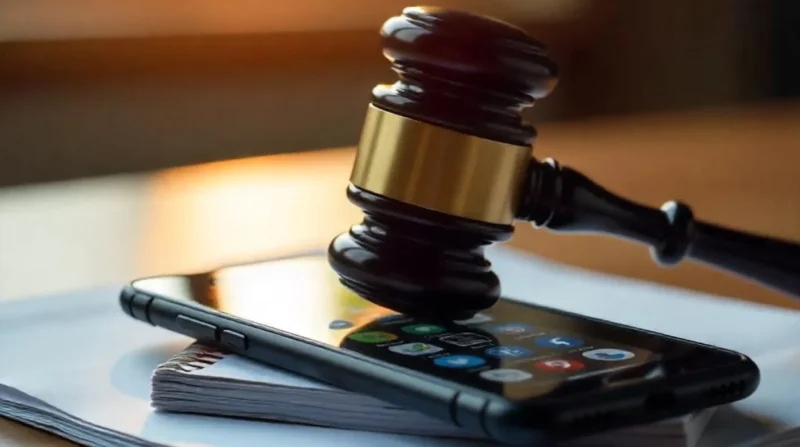Table of Contents
- The Escalation of Legal Disputes Involving Social Media
- Why Legal Actions Are Rising?
- Prominent Cases Illustrating the Trend
- Legislative and Regulatory Developments
- Impact on Users and Tech Companies
- Case Studies: Legal Turning Points in Social Media
- Common Legal Challenges on Social Media Platforms
- Section 230 and Platform Immunity
- Legal Ramifications for Stakeholders
- Best Practices to Avoid Legal Pitfalls on Social Media
- Looking Ahead: The Future of Social Media Litigation
- Conclusion
In the modern digital era, social media platforms have become deeply embedded in everyday life, serving as tools for communication, self-expression, and the dissemination of information. Yet, their vast reach and influence also give rise to complex legal challenges. From defamation and privacy breaches to antitrust matters and content moderation disputes, social media lawsuits have surfaced as pressing legal concerns. Gaining insight into these legal dynamics is essential for users, businesses, and legal experts alike.
The Escalation of Legal Disputes Involving Social Media
In recent years, there has been a marked increase in litigation involving social media platforms. As these platforms grow in societal and commercial importance, issues related to user protection, privacy, and content governance have fueled a surge in legal claims. This article examines the drivers behind this trend, explores landmark cases, and outlines the evolving regulatory responses.
Why Legal Actions Are Rising?
Social media has revolutionized the way we communicate, do business, and entertain ourselves. However, this transformation has introduced multifaceted legal concerns. Increasingly, users, advocacy groups, and regulators are challenging platforms over issues such as:
• Mental Health and User Safety: Claims suggesting that platform design encourages addiction and psychological distress, particularly among youth.
• Data Privacy Violations: Allegations of unauthorized data harvesting and misuse.
• Censorship and Misinformation: Legal battles over freedom of expression and content filtering.
• Copyright Infringement: Instances of unauthorized use of protected content.
These concerns have resulted in growing scrutiny and a corresponding rise in litigation targeting tech giants.
Prominent Cases Illustrating the Trend
1. Lawsuits Linked to Youth Mental Health and Platform Design
As of early 2025, over 1,200 lawsuits are consolidated in multidistrict litigation over the alleged psychological harm and addictive nature of social media platforms like Meta and TikTok. These cases assert that tech companies have failed to protect younger audiences from harmful content and manipulative features.
2. Algorithm-Driven Harm: The TikTok Example
In a tragic case, the family of 10-year-old Nylah Anderson sued TikTok, alleging that its algorithm promoted a dangerous viral challenge that led to her death. The court’s decision to allow the lawsuit to proceed highlights the increasing willingness to hold platforms accountable for algorithm-curated content.
3. Major Privacy Breaches: The Facebook–Cambridge Analytica Scandal
The infamous scandal involving the misappropriation of user data by Cambridge Analytica for political advertising purposes prompted legal action and a record-breaking $5 billion fine from the U.S. The Federal Trade Commission brought attention to significant shortcomings in privacy management and oversight.
4. Influencer Responsibility and Transparency
The collapse of the Fyre Festival drew attention to influencer marketing ethics. Influencers faced lawsuits for failing to properly disclose paid endorsements, prompting greater regulatory oversight of promotional transparency.
Legislative and Regulatory Developments
Governments across the globe are responding with increasingly stringent regulations and enhanced enforcement measures:
• Child Protection Laws: Nations like Australia have introduced age restrictions and heavy penalties for non-compliant platforms.
• State-Level Litigation in the U.S.: Multiple states have launched lawsuits targeting the role of platforms in youth mental health crises.
• Transparency Requirements: Legislation in places like California mandates that social media companies reveal their moderation frameworks and enforcement procedures.
Impact on Users and Tech Companies
• For Users: These legal developments encourage more conscious digital behavior, particularly regarding data privacy and mental health awareness.
• For Platforms: There is mounting pressure to refine algorithms, fortify data privacy protocols, and enhance moderation practices.
• For regulators: Ongoing litigation underscores the need for comprehensive, adaptable digital laws.
Case Studies: Legal Turning Points in Social Media
1. Anderson v. TikTok (2024)
The U.S. Court of Appeals ruled that TikTok could be held liable for algorithm-driven content that caused real-world harm, challenging conventional interpretations of Section 230 protections.
2. TikTok v. Garland (2025)
The U.S. The Supreme Court upheld the enforcement of a federal law that effectively bans TikTok’s operations across the United States. unless it severed ties with its Chinese parent company, citing national security concerns and setting a legal precedent on foreign tech ownership.
3. Florida’s Content Regulation Law
A lawsuit was filed contesting Florida’s legislation that limits minors’ access to social media platforms, raising significant constitutional concerns. Plaintiffs argued it violated free speech rights under the First Amendment, illustrating the conflict between federal protections and state-level digital regulation.
Common Legal Challenges on Social Media Platforms
1. Online Defamation
False online statements can damage reputations instantly. For instance, the Bombay High Court issued a directive to take down content deemed defamatory towards politician Girish Mahajan. Similarly, Anjali Birla took legal action against false claims regarding her academic qualifications.
2. Privacy Infringements
Misuse of personal data can have dire consequences. British national Ahmed al-Doush was sentenced in Saudi Arabia, reportedly over an old tweet, underlining global disparities in digital expression laws. Meanwhile, social platform X faced backlash for restricting access to an Istanbul mayor’s account under Turkish legal pressure.
3. Intellectual Property Theft
Posting copyrighted content without permission can result in lawsuits. In PhoneDog v. Kravitz, the court recognized that social media account assets, like followers and passwords, could be considered trade secrets.
4. Free Speech vs. Moderation
Cases like Anderson v. TikTok challenge the limits of Section 230 and question whether platforms should be immune when their algorithms promote harmful material. Compliance with national laws often complicates global content governance.
5. Employment and Reputation Management
Employers may be liable for employees’ inappropriate posts. Companies are encouraged to enforce social media policies to avoid reputational or legal fallout.
6. User Agreements and Legal Boundaries
Platform terms of service often include arbitration clauses that prevent public legal disputes. Although most users tend to overlook these agreements, they play a crucial role in shaping the legal framework of online platforms.
7. SLAPPs and Expression Suppression
Strategic Lawsuits Against Public Participation are often used to silence critics. The EU’s 2024 directive aims to shield public discourse from such abusive litigation.
Section 230 and Platform Immunity
Section 230 of the Communications Decency Act has long shielded platforms from liability for user-generated content. However, recent court interpretations suggest limits to this immunity, particularly in cases involving platform-designed recommendation systems.
Legal Ramifications for Stakeholders
• Users risk reputational harm, legal consequences, and financial losses from online activity.
• Businesses face increased exposure to lawsuits over privacy, intellectual property, and employee conduct.
• Regulators are under pressure to modernize laws that govern a rapidly evolving digital ecosystem.
Best Practices to Avoid Legal Pitfalls on Social Media
To reduce legal exposure, follow these guidelines:
• Validate Sources: Share only verified, reliable content.
• Respect individual privacy: By ensuring you have explicit consent before disclosing any personal or sensitive information.
• Comply with copyright law: Avoid unauthorized use of intellectual property.
• Post Responsibly: Refrain from defamatory, offensive, or misleading content.
• Stay Updated: Monitor changes in digital law and policy.
Looking Ahead: The Future of Social Media Litigation
As digital technologies like AI and biometric data tracking advance, the scope and complexity of social media litigation will expand. Regulatory adaptation and legal literacy will be essential for users, platforms, and policymakers moving forward.
Conclusion
Social media lawsuits exemplify the evolving intersection between technology, law, and society. By understanding the legal risks, precedent-setting cases, and recommended safeguards, individuals and organisations can better navigate this complex terrain. As digital ecosystems continue to grow, so too must our collective legal awareness and preparedness.









